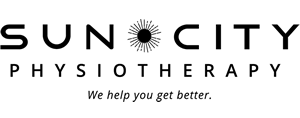Did you wake up this morning with acute facial pain and inability to open your mouth? When you think to yesterday, you remember taking a big bite from an apple and experienced a sharp pain in your jaw joint. Today, you can’t really open or fully close your mouth. That unexplained clicking in your jaw that you’ve had for two years has suddenly gone away. Now, there’s just facial tenderness in front of your ear and you’re worried that you can’t eat! If you experience this, you likely have a “locked jaw”, or Acute Disc Displacement. This is one of the common disorders of the Temporomandibular Joint, more known as the TMJ.
The TMJ is the ball and socket joint that connects the Mandible (jaw bone) and the Temporal bone (one of the bones of your skull). It’s the small joint located in front of your ear. There is a cartilage cushion in between the ball and socket, referred to as the Disc. The disc is supported by special Ligaments, which keep the disc in place. Movement problems of the disc can be responsible for creating many symptoms in the TMJ, such as clicking, crepitations, locking, muscle spasm, and pain.
TMJ Disorder/Dysfunction, or TMJD/TMD, is seen more commonly in women than men. There is a 3:1 incidence in females to males, and can include one or both jaw joints. In most instances, the dysfunction is a result of an imbalance or change in the normal function of the bones, ligaments, muscles, disc, or nerve components of the TMJ complex.
Disc Displacement is a mechanical problem that occurs when the disc ends up in the wrong position within the ball and socket. In this case, it is likely that the disc has become displaced due to the wide opening, creating increased stress and strain on the ligaments, resulting in pain around the joint and spasm in the facial muscles. There is also a longstanding history of unexplained clicking in the joint, which may be a pre-disposing factor to this problem. In essence, the disc needs to be properly re-educated to find its’ normal resting position again, and the mechanics restored to the muscles and joint. Specialized physical therapy care would assist in restoration of disc position, to restore movement and function, as well as normalize the pain.
Dysfunction in these tiny joints can have many causes. These can include trauma such as blow to the head, whiplash, falls, sports injuries, arthritis, dental occlusion, dentures, history of joint noises, stress (clenching, grinding), poor habits (posture, physical, oral), and many others. Signs and symptoms may include facial pain, headache, neck pain, ear pain, sudden changes in bite, tooth pain, ringing in the ears, shoulder pain, and facial tingling or numbness.
A physical therapist can help you understand and manage your TMJ dysfunction. Often it is obvious that the TMJ is the cause of symptoms you experience. However, for many people, the symptoms they experience can be widespread, and may not make it so obvious. As mechanics for the human body, physical therapists can properly assess, diagnose, and treat the TMJ and most of the possible influences. We provide a specialized hands-on approach to treatment, education, and exercise program. Treatment may also include other muscle re-education techniques such as Intramuscular Stimulation (IMS). In many instances, we often work with your oral practitioner (dentist, orthodontist, oral surgeon) to ensure the best outcome possible for your TMJ. Treatment can be very effective in a short period of time. A self-applied approach with a little guidance from specialized physical therapy practitioners will help with long-term benefits.
Acute Disc Displacement is only one of several diagnoses of TMJ dysfunction. Keep connected to read about other problems that these tiny joints can give you. Don’t stop eating apples though…
